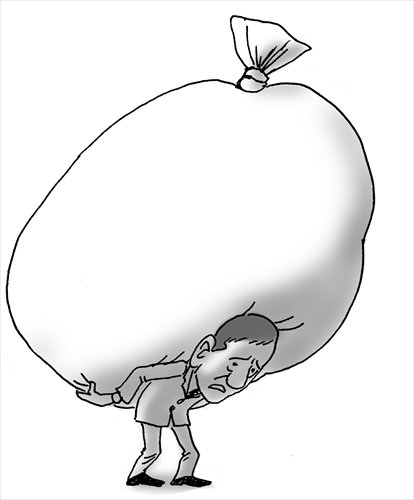NLD faces challenges of reconciliation

Illustration: Liu Rui/GT
The November 8 elections in Myanmar resulted in a landslide victory for the National League for Democracy (NLD). The big win means that the NLD can completely transform the country, its first opportunity to do so since the party was denied power in 1990. As the leader of the winning party, Aung San Suu Kyi met last week with Myanmar's Commander-in-Chief Min Aung Hlaing and President Thein Sein to discuss the transition, as well, interestingly, with former dictator General Than Shwe. Power will be handed over at the end of March.
At present it is unclear who will be president although rumors abound. Suu Kyi is barred by the constitution due to her British sons. She has however declared that she will be "above the president" and will take all the decisions - a move that could lead to confrontation with the military.
Developing cordial relations with the military is the first important challenge for the new government and key to the country continuing on its path of reform. The constitution guarantees their place in parliament and control over key ministries. They will remain significant stakeholders in the political system.
A divided parliament on military-civilian lines won't be good for national reconciliation or for the peace process. The NLD's commitment to alter the constitution and in particular change the article that bans Suu Kyi from the presidency is likely to bring the party into conflict with the military leadership.
Another challenge is uniting a country that is divided on ethnic and religious lines. Ultra nationalist Buddhist movement Ma Ba Tha, led by monks, has gained traction in the last three years and has been fuelling anti-Muslim feelings across the country. Ma Ba Tha's influence resulted in Muslim electoral candidates not being able to contest their seats. The NLD has not spoken up for the disenfranchised Rohingya either, in fear of being branded foreigner friendly.
There are also issues around the representation of ethnic minorities. In 2010 ethnic minority MPs formed the first legal opposition to the USDP-dominated parliament. Despite local ethnic leaders' misgivings the NLD fielded candidates in all areas, even those where ethnic minorities dominate.
The NLD landslide has displaced the ethnic parties, which does not bode well for an inclusive political process. The NLD has always maintained that democracy is their first priority and ethnic grievances can be addressed later. Given the protracted and ongoing peace process with the ethnic armed groups, ethnic voices are essential. It is at present unclear how the NLD will address these issues.
The third big challenge will be fulfilling the expectations of the electorate whilst ruling and administering the country. With the exception of wanting to change the constitution, the NLD has not made its priorities clear. It remains to be seen in how far the MPs who will be nominated as ministers will have the capacity to bring the transformation about that their supporters are awaiting. The NLD campaigned on the promise of change and is seen as the "savior" of the country.
In order to fulfill that promise of change and to distinguish NLD rule from the last five years under the USDP, Suu Kyi imposed strict discipline on her own MPs. During the campaign candidates were not allowed to speak about themselves; the election was about the NLD as a party and her as a leader. It looks like the party will continue to be ruled tightly.
At a recent meeting in Yangon she laid down the law for successful candidates. Their salaries will be cut so as to support the party's finances. All will have to take exams on the constitution and the party's manifesto. Those who do well and who have good English skills will be given the opportunity to travel and get further exposure. MPs were also told that they have to pick up the rubbish in the streets of their constituencies to lead by example. Their assets have to be declared and regular checks will be made to control corruption.
It has been made clear that cliques in the party will not be tolerated and MPs have been encouraged to report on each other if they feel colleagues are not good team players. Party policy will superseded personal ideas and ambitions. Whilst all these new rules certainly offer the opportunity for clean and possibly even transparent governance, Suu Kyi has to be careful not to replace one dictatorship with another.
The author is an Asia specialist at Technology and Management Practice. m.lall@ioe.ac.uk